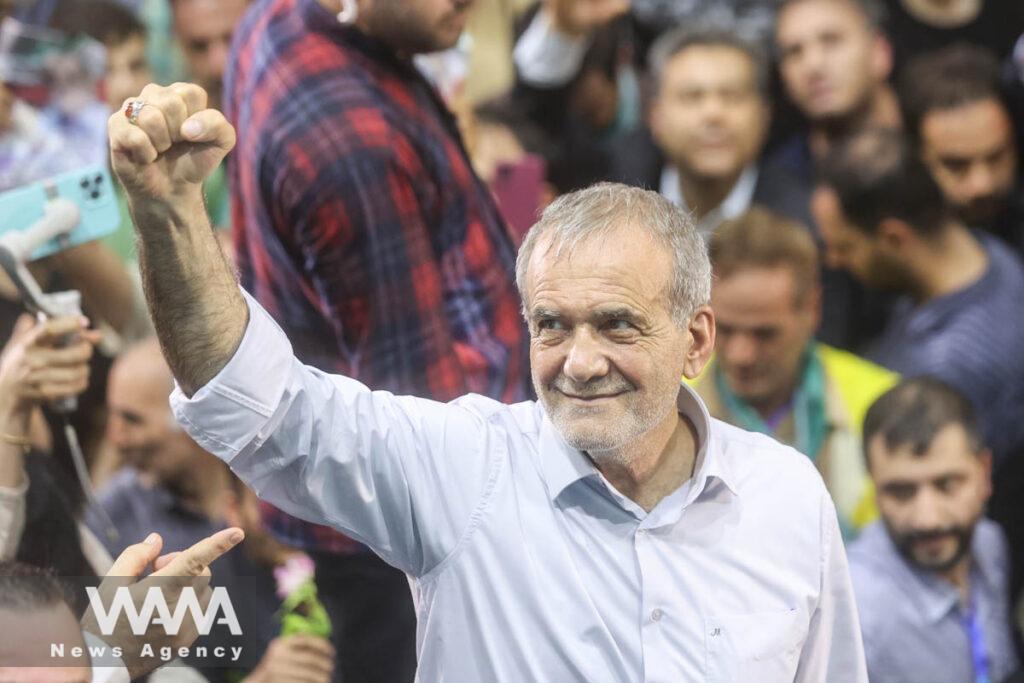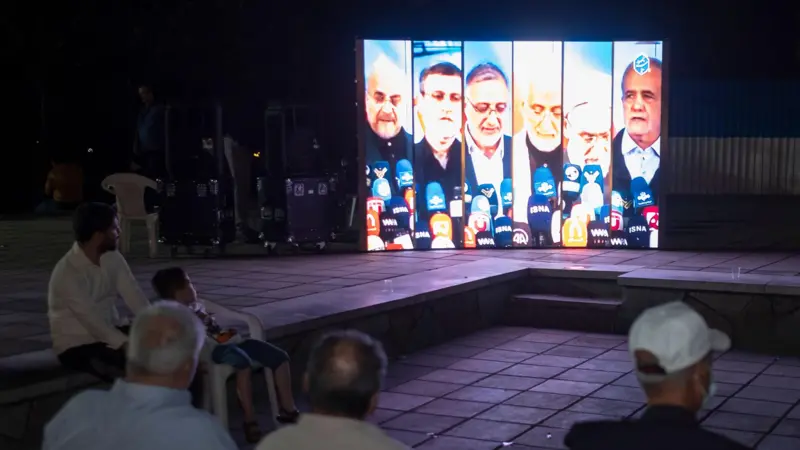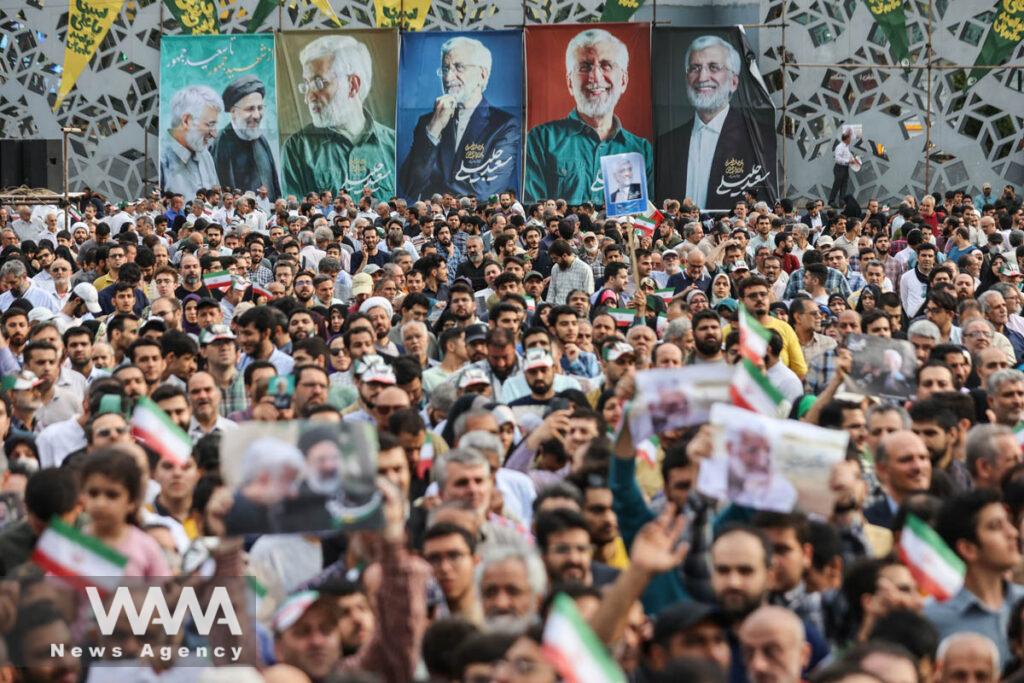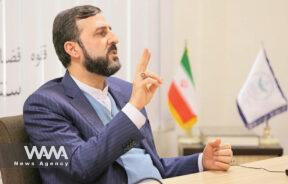Who Won the Fourth Presidential Debate?
WANA (June 25) – Last night, the fourth round of the Iranian presidential candidates’ debate on foreign policy was held. Millions of Iranians watched this debate on national television. Many viewers stated that this debate had more beneficial content compared to the previous ones.
This debate might have encouraged more hesitant voters to participate. However, the percentage of people who are unwilling or undecided to vote remains high. In the latest surveys, nearly 20% of people are still uncertain about voting.
Iranians consider Ghalibaf, Jalili, Zakani, and Qazizadeh as the candidates from the conservative front. These candidates couldn’t gain more votes in the previous three debates. In contrast, Masoud Pezeshkian, the reformist candidate, managed to increase his popularity by addressing issues such as women’s dress freedom, lifting censorship, direct negotiations with the U.S. and the West, and supporting teachers’ and students’ rights.
However, in the fourth debate, the competition scene changed significantly, and the conservative candidates challenged many of the views and claims of the reformist candidate and his advisors. They accused Pezeshkian of receiving poor advice from his close circle.

Iranian presidential candidate Masoud Pezeshkian waves during a campaign event in Tehran, Iran, June 23, 2024. Majid Asgaripour/WANA (West Asia News Agency)
The conservative candidates stated that their rival repeats the same statements and offers no governance plan, aiming only to play with people’s emotions to gain more votes. Even in previous debates, when Pezeshkian was asked why he used individuals like Javad Zarif, the foreign minister of Hassan Rouhani’s government, and other weak and controversial figures in his campaign, he frankly stated that his main goal is to win the election and he would use anyone for that purpose.
Many viewed Pezeshkian’s statement as an instrumental exploitation of these figures who supported him in this tough competition. On the other hand, many believe that prominent figures like Javad Zarif and other former ministers of Rouhani’s government seek to exploit Pezeshkian for their personal goals.
Reformists claim that the revolutionary approach of the conservatives is idealistic while their own approach is realistic. But Jalili, Ghalibaf, Zakani, and Qazizadeh tried in this debate to prove how unrealistic and fanciful the opposing strategy is. The strategy of relying on world powers, repeatedly presented by Pezeshkian, was explicitly challenged by other candidates.

WANA-forth presidential debate
Jalili, known as a hardline candidate, said: “Besides lifting and neutralizing sanctions, we can also aim to make the enemy regret the sanctions.” With this statement, he showed his aggressive thinking. Ghalibaf tried to speak more ethically and reasonably, presented his plans, avoided insulting anyone, refrained from creating divisions, and had a clear plan focused on neutralizing Western sanctions.
Like Pezeshkian, Ghalibaf believes in engaging with the world to solve economic issues and the nuclear crisis in Iran. He also doesn’t see increasing tensions as beneficial for Iran’s economy.
“The 60% uranium enrichment was done according to the parliamentary strategy law, but if they (Westerners) lift some sanctions, we will also reduce enrichment,” Ghalibaf said.
Pour mohammadi, another presidential candidate, shared views similar to Pezeshkian’s and aimed to attract more attention by highlighting problems without providing specific solutions. In the best-case scenario, Pour mohammadi might be able to secure one million votes.

Banners of presidential candidate Saeed Jalili are displayed during a campaign event in Tehran, Iran, June 24, 2024. Majid Asgaripour/WANA (West Asia News Agency)
Zakani and Qazizadeh performed better than in previous debates. They launched fierce attacks on Pezeshkian, portraying the reformist candidate as incapable of managing the country. Zakani sarcastically accused Pezeshkian of begging the West. “Our problem is that we beg the West to solve our internal issues,” Zakani said.
Qazizadeh often defended the performance of the late Raisi administration. He labeled Hassan Rouhani’s government as very weak and accused Pezeshkian of wanting to continue Rouhani’s policies, an accusation Pezeshkian denied, although the composition of his team supports Qazizadeh’s claim.
The fourth debate had many exciting and challenging moments. Will these debates lead to greater participation? Will the people reconcile with the ballot boxes?
WANA / Writing by R. Ganji. and R. Hejazi contributed.












